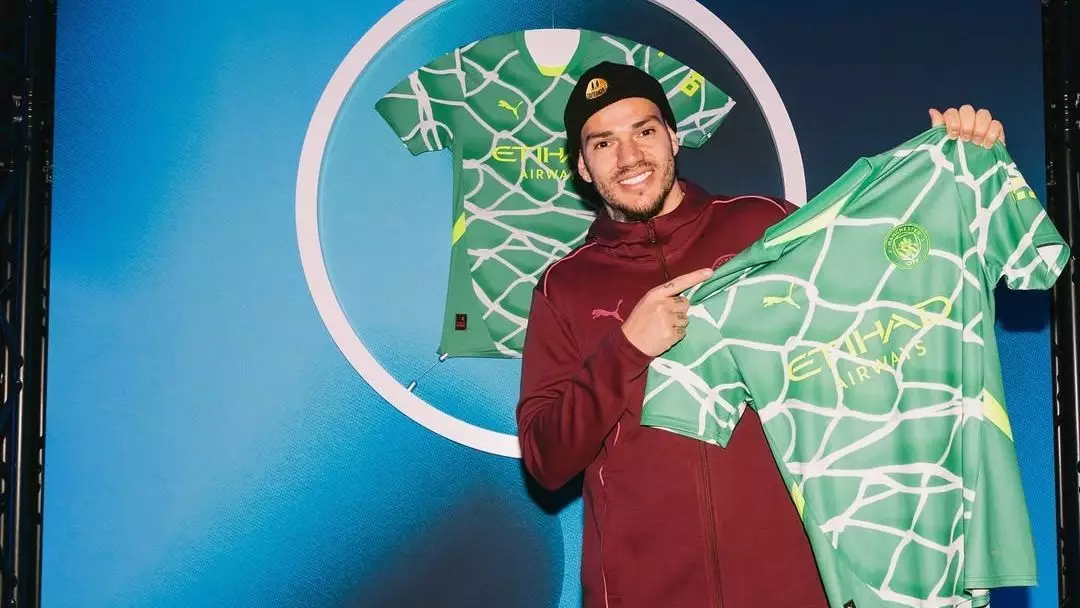In the ever-evolving landscape of sports branding and fan interaction, Manchester City and Puma have taken a bold step by harnessing the power of artificial intelligence to engage supporters in a creative contest. With the club currently facing a challenging spell of performance, this initiative not only aims to uplift the spirits of fans but also paves the way for a novel approach to kit design. This unique endeavor showcases how technology can bridge the gap between clubs and their supporters while raising questions about the implications and ethics of using AI in creative processes.
The introduction of a text-to-image AI kit generator marks a significant moment for Manchester City. In collaboration with DeepObjects, the platform allows fans to unleash their creativity by designing the club’s third kit for the 2026-27 season. Fans can propose imaginative concepts by submitting text prompts, which the AI then transforms into visual designs. Although the excitement of contributing to a club’s identity is palpable, a closer inspection reveals complexities about ownership, originality, and the connection between supporters and corporate marketing strategies.
The timing of this launch is particularly intriguing, given the recent struggles of the club in terms of match performance. From an outsider’s perspective, this initiative could be interpreted as a strategic maneuver to engage a fanbase that may be feeling disenchanted. While the partnership with Puma offers fans an opportunity to participate in the creative journey, it also prompts a critical dialogue about whether this contest serves true fan engagement or merely functions as a clever marketing ploy.
One of the most pressing issues surrounding AI-generated imagery involves concerns about copyright and originality. The AI model draws from a vast library of images to produce its creations, which calls into question the ownership of designs generated through fan input. Upon entering the contest, participants agree to terms that allow Manchester City and Puma to modify the generated designs, ostensibly to sidestep potential copyright conflicts. Herein lies a critical dilemma: while fans have the chance to design, they may inadvertently forfeit their artistic rights in the process.
Furthermore, the challenge poses a substantial scope for misunderstanding among users. Feedback from early users suggests that the AI generator can often lead to unintended outcomes when prompts are overly specific or culturally nuanced. This downside raises concerns regarding the quality and representational accuracy of the designs produced. If the technology fails to capture the essence of a fan’s vision—resulting instead in designs that misinterpret cultural references or lean towards randomness—it could detract from the feel-good factor expected from such initiatives.
The contest encourages fans not only to showcase their design skills but also to engage with the broader community. Each participant is rewarded with Design Credits, which can be earned by reviewing others’ submissions. This aspect fosters a collaborative atmosphere among fans and allows for a democratic element in the design process. The shortlist of potential designs will be determined through a combination of fan votes and evaluations by experts from Manchester City and Puma, culminating in a public vote to crown the winning kit.
However, while the approach invites collective involvement, there is palpable skepticism regarding the depth of this engagement. Do these initiatives create genuine communal ties, or do they merely provide a façade of participation? The expectation that fans can impact something as significant as a club kit design raises hopes, but it may also lead to disillusionment if the final product does not align with fan aspirations.
As the contest approaches its deadline, it intertwines excitement with the realities of corporate collaboration in sports. The kit that emerges from this process will undoubtedly represent a blend of fan creativity and corporate design goals, reinforcing Manchester City’s identity within the sporting world. However, it can be argued that the creative liberties offered to fans risk dilution in a marketplace increasingly driven by branding requirements.
Manchester City’s AI kit design contest is a fascinating intersection of technology, creativity, and fan engagement. This initiative may serve as an eye-opener for sports organizations regarding fan involvement, yet the intricacies of copyright, community sentiment, and the authenticity of participation present formidable challenges. As technology continues to reshape the landscape of sports, the aspirations of fans and the techniques that bring those aspirations to life will remain closely scrutinized. Whether this initiative truly brings fans closer to the game they love, or merely serves as a corporate engagement tactic, will ultimately depend on the outcome of the designs and the authenticity of their adoption by the club in subsequent seasons.

